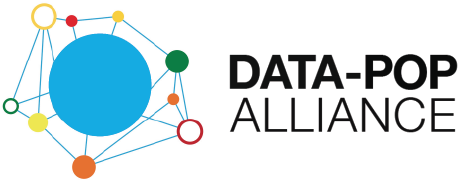TOGO
Information last updated: 7 April, 2020
- Total population: 7.8 M
- Population +65 yo: 3%
- GDP Per Capita: 1,590 USD
- Informal employment: 92% (2014)
- First registered case: 6 March
- Hospital beds: .70 (per 1,000 people)
Sources: TheWorld Bank and WHO (Population over 65 years old, Informal employment, GDP-PPP, Hospital beds).
Status
- No compulsory mobility restriction measures put in place. Land and air borders closed since March 29.
Response set up and capacity
The strategic management of the crisis is led by the Presidency of the Republic, while the operational management is led by the Ministry of Health and Public Hygiene. The latter has set up a sectoral council for managing the crisis to the Covid-19 pandemic.
Stakeholder Mapping
Entities / Organizations
• President of the Republic
• Primer Minister
• Ministry of Health and Public Hygiene
• Ministry of the Interior and Security
Additional actors
• United Nations system organizations (UNDP, UNFPA, UNICEF, WHO, UNAIDS, World Bank, IMF)
• European Union
• German Cooperation - GIZ
• French Embassy
• Togolese Red Cross
Mitigating factors - What is being done?
Several response measures have been taken by the government to combat the spread of Covid-19 on Togolese territory, which can be grouped into three categories of measures: collective or institutional measures, economic measures and finally measures specific for medical and healthcare workers. As of April 3, no compulsory containment measures have been taken by the government, though it is recommended to avoid non-essential gatherings and to limit unnecessary travel.
- March 16 – all international events planned in Togo are canceled from three weeks; non-essential official missions to high-risk countries are also banned.
- March 17 – Compulsory self-isolation of fourteen days is mandated for anyone arriving in Togo and having stayed in a high-risk country. Strong penalties are provided in the event of non-compliance with self-isolation. It should be noted that people from other countries not classified as “high risk” are not required to self-isolate.
- March 19 – all gatherings of over 100 people are banned throughout the country and for one month, starting on this date; the Tsévié market, amongst others, is closed on this day.
- March 20 – all air travel from high-risk countries, namely Italy, France, Spain and Germany is suspended; private and public schools and universities are closed across the country; all cultural events were banned and places of worship were also forced to close.
- March 20 – only cargo flights are allowed to land at the Lomé airport.
- March 26 – Four cities affected (Lomé, Tsévié, Kpalimé and Sokodé) are cordoned off.
In addition to this, the government has established awareness raising campaigns through TV and radio channels in several languages, as well as the reinforcement of surveillance measures, including individual and collective prevention and protection measures (hands washing, social distancing, etc). With regards to economic measures, the government has established teams to conduct unannounced checks throughout the country in order to control the prices of medical and food products, looking to curve inflation. Last, regarding measures specific to healthcare, the government has converted “Le Bénin” Hotel and the CHR-Lomé Commune into facilities for individuals that are either in mandatory quarantine, or that are suspected to have Covid-19. Additionally, it put in place a medical strategy for the use of protective equipment as well as a strategy for the supply of medicines and disposable protective material. The government has made it compulsory to wear masks in markets, shops and other public agencies.
Up to the moment, no food aid, welfare benefits, or tax subsidies have been put into effect.
Risks, vulnerabilities, obstacles
The Togolese economy is essentially made up of informal workers, making daily wages. In the case of a national quarantine, there is a high risk of non-compliance with the measure, given that more than 90% of jobs are in the informal sector. The proximity of vendors in markets poses a real threat for contamination.
Key resources
- Coronavirus au Togo https://covid19.gouv.tg/situation-au-togo/
- PNUD Togo Twitter
Contributor(s): Komi Ognadon Aokou, Jeanne Bougonou.


